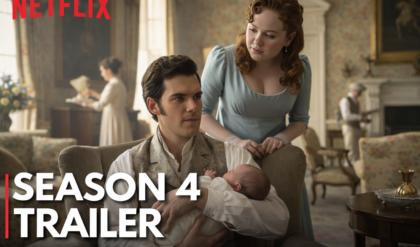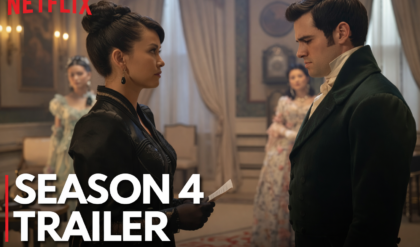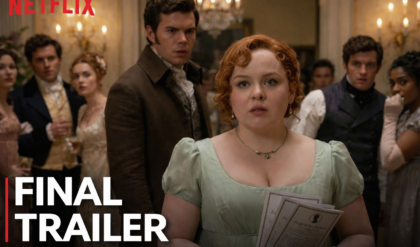The Real-Life Story Behind Adolescence Unveiled: How Knife Crime and Toxic Culture Fueled Netflix’s Chilling Hit
When Adolescence landed on Netflix on March 13, 2025, it didn’t just seize the streaming charts—it gripped the world with a visceral tale that felt all too real. The four-part British crime drama, co-created by Stephen Graham and Jack Thorne, follows 13-year-old Jamie Miller (Owen Cooper), arrested for murdering his classmate Katie Leonard. Filmed in relentless one-take episodes, the series unfolds in real time, pulling viewers into a family’s nightmare and a society’s unraveling. With 114 million views and a 98% Rotten Tomatoes score, it’s no wonder fans and critics alike are asking: what’s the real-life story behind this haunting hit? While Adolescence isn’t based on one specific case, its roots lie in a chilling tapestry of UK knife crime, online radicalization, and the pressures twisting young lives. Let’s explain the truth that inspired this Netflix phenomenon.
From the outset, Adolescence shocks. Episode 1 opens with police storming the Miller home, dragging Jamie from his bed as his parents—Eddie (Graham) and Manda (Christine Tremarco)—reel in disbelief. By the episode’s end, CCTV footage confirms Jamie stabbed Katie seven times, shattering any hope of innocence. The series then pivots—Episode 2 probes the school, Episode 3 dissects Jamie’s psyche with psychologist Briony Ariston (Erin Doherty), and Episode 4 confronts the family’s grief as Jamie pleads guilty. It’s a gut punch, made more so by its single-take style, a technique director Philip Barantini honed in Boiling Point. But the real power lies in its inspiration, a mosaic of real-world tragedies and cultural currents that Graham and Thorne couldn’t ignore.
Stephen Graham, who co-created and stars as Eddie, has been vocal about the spark. In interviews with Tudum and RadioTimes, he points to a wave of knife crimes that “hurt his heart.” He recalls reading about a boy stabbing a girl in Liverpool, then another in south London—incidents echoing real cases like the 2021 murder of 12-year-old Ava White by a 14-year-old boy, and the 2023 killing of 15-year-old Elianne Andam by a 17-year-old in Croydon. “What’s going on?” Graham asked Tudum. “What’s happening in society where a boy stabs a girl to death?” These weren’t isolated; the UK’s Office for National Statistics reported in 2024 that 83% of teenage homicide victims were stabbed, with knife offences doubling over a decade (Variety). Adolescence isn’t a biopic of these crimes—Jamie is fictional—but their frequency and brutality shaped its core question: why?
Jack Thorne, the series’ co-writer, layered in another chilling reality: the digital abyss swallowing young minds. Jamie’s descent isn’t just about a knife; it’s about the online subcultures—incel forums, the “manosphere”—that warp his worldview. The show name-drops Andrew Tate, the far-right influencer whose misogynistic rants have millions of teen followers. In Episode 2, DI Luke Bascombe (Ashley Walters) flags Jamie’s exposure to incel rhetoric—Katie called him an “incel,” a taunt tied to the 80/20 rule (80% of women chase 20% of men) that Thorne told The Guardian he found disturbingly logical as a teen himself. Graham stumbled into this world via his son Alfie’s workout video, only to see Tate’s vitriol pop up days later (Rolling Stone UK). “If I was 13 and isolated,” Thorne mused to The Independent, “I’d find answers there.” This isn’t fiction—UK Prime Minister Keir Starmer warned in 2025 of “loners” radicalized online, a trend Adolescence mirrors with eerie precision.
The timing amplifies its resonance. The series aired months after Axel Rudakubana, 18, was sentenced to 52 years for stabbing three girls at a Taylor Swift-themed dance class in Southport in 2024—a crime predating Adolescence’s writing but underscoring its urgency (Entertainment Weekly). Though not a direct inspiration, Rudakubana’s case, linked to violent online content and an Al-Qaeda manual, parallels Jamie’s fictional radicalization. Graham told The Hollywood Reporter, “They’re young boys, not men—their brains aren’t fully formed,” a sentiment reflected in the title and Jamie’s childlike pleas of “I’ve done nothing wrong” before the footage damns him. The real-life stakes? In 2023, the Ministry of Justice logged 18,500 knife-related cautions or convictions, 17.3% by kids aged 10-17 (House of Commons Library).
Behind the scenes, the realism was intentional. Casting Cooper, a 14-year-old with no acting experience, was a gamble that paid off—his audition tapes, raw and explosive, mirror Jamie’s volatility (Daily Mail). Barantini shot in South Kirkby and Sheffield, gritty Yorkshire towns that ground the story in everyday life. The one-take format—five days per episode, ten tries each—meant Cooper learned an hour’s dialogue in two weeks, breaking down as cameras rolled (Vogue). Graham improvised Eddie’s collapse onto Jamie’s pillow, a teddy bear clutched in despair, a moment crew members wept over (MovieWeb). “We made it with love, integrity, respect,” Graham told Tudum, and that rawness echoes the real pain driving its creation.
The cast rounds out this authenticity. Ashley Walters and Faye Marsay, as detectives Bascombe and DS Misha Frank, wrestle with Jamie’s motives—Frank’s frustration at Katie’s erasure (“Everyone will remember Jamie”) nods to real victim overshadowing. Erin Doherty’s Briony peels back Jamie’s layers, exposing a boy warped by bullying and online poison. Tremarco’s Manda and Graham’s Eddie embody parental shock—could this happen to us? It’s a question Graham posed to Tudum: “We wanted you to look at this family and think, ‘My God.’” Unlike gang-focused dramas, Adolescence targets the “ordinary,” a universality that’s landed it in UK classrooms and earned Starmer’s praise (Vanity Fair).
Fan reactions on X show its impact. “Owen Cooper carried Episode 3 in one insane shot—mind-blowing,” one wrote, while another demanded, “Season 2 from Katie’s POV would be first-class.” Yet, Thorne insists Jamie’s story is “finished” (ITV), and producer Hannah Walters nixed a prequel (Variety). Still, Graham’s hint to Variety—“There’s the possibility of another story”—keeps hope alive, backed by Plan B Entertainment’s talks with Barantini for a “next iteration” (Deadline). Posts on X debate its truth: some claim it’s “total fiction” (@robkhenderson), others tie it to specific cases like Rudakubana’s (@IsabellaMDeLuca), but the creators clarify it’s a composite, not a retelling.
So, what’s the real story? Not one crime, but many—knife attacks doubling, teens lost to digital hate, parents blindsided. Adolescence doesn’t just reflect these—it confronts them. Thorne’s research into Mary Bell’s 1960s murders (via Cries Unheard) and the “manosphere” shaped Jamie’s complexity, while Graham’s visceral reaction to news reports fueled its heart. The result? A series that’s less true crime and more true warning, hitting No. 1 globally with 66.3 million views in 11 days (Newsweek). As Cooper rises—next in Wuthering Heights—and the show sparks talks from schools to Parliament (BBC), its real-life roots prove its power. Can you believe it’s not one story, but a mirror to millions? Watch, and decide—the truth cuts deep.





